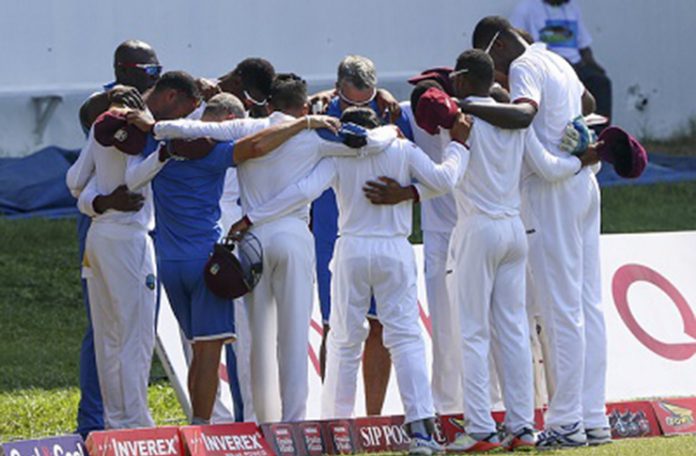
RAJKOT, India (CMC) – Ex-Test opener Daren Ganga says West Indies’ heavy defeat in the first Test last week was another stern reminder of the crisis in Caribbean cricket, and that cricket in the region was in need of a structural overhaul.
The Windies crashed to an innings and 272-run defeat to India here – the hosts’ largest-ever margin of victory in Tests – to extend their dismal record of 24 years without a win on Indian soil.
“What I saw in Rajkot was a contrast to what I saw in the Caribbean (earlier this year),” said Ganga, who is a media pundit for the series.
“The last five Tests played by the Windies were actually good in terms of their form in this format, where they won three out of five and lost only one to Sri Lanka. I saw progress in a lot of the players.
“This was a meek surrender. They capitulated. I have seen it year upon year when the Windies don’t start well in a Test series, it goes downhill. It’s very difficult for them to recover.”
He continued: “The alarm bells are still ringing but they’ve been ringing from five to seven to 10 years – you get jaded hearing them ring. That’s been the case in the West Indian setup. You no longer get a jolt from the performance like Rajkot.
“Some people are disenchanted while others have given up interest or don’t have the energy to fight for reform and put things right because progress has been so slow. There are a select few who aggressively pursue the betterment of West Indian cricket and they’re trying to address the deficiencies.
“Progress cannot be in a vacuum though. There’s a great desire for the fortunes to change among the great players of the past but many of them aren’t influential and that’s the most frustrating thing.”
Ganga, who played 48 Tests between 1998 and 2008, argued that the respective boards in the Caribbean were not modernised enough to deal with the changing sport.
He also contended that “self-interest” had also inhibited administrators from making decisions for the benefit of cricket, resulting in a negative overall impact.
“The administrative arm and the vehicles that administer the game – I speak directly about the territorial boards, the constitution and framework – are archaic and outdated,” Ganga told the India Express.
“And they’re charged with the responsibility to support a modern, dynamic game. There are lots of things being done to change but there is an old guard that continues to hold on to power, like the incumbent group of executives in Trinidad & Tobago who continue to inherit power.
“Those in control are not willing to relieve them because their self-interest comes in between with the greater good of the game. That’s a direct negative in the quality of play that we showcase to the world.”
Ganga said issues like coaching in the Caribbean and the lack of an academy also needed to be addressed, as this directly impacted the quality of cricket being played by representative West Indies sides.
“There are many other deficiencies that have a correlation to the quality of cricket we produce at the highest level,” he explained.
“Our coaching education programme and the coaching certification programme haven’t been in existence for a number of years. When you think about how that’s not been consistently addressed over the years, you realise there’s been over a generation of cricketers who’ve been coming out of the grassroots levels, who have not interfaced with quality coaches, not learnt the proper technique or approaches and who are currently going through a process of unlearning and therefore developing into substandard cricketers.
“The coaching education should ideally be in alignment with the player development pathway. That is a fundamental issue. It’s a hit-or-miss situation. Then there’s no academy or finishing school like the Australian Institute of High Performance, which I and Ramnaresh Sarwan attended and rubbed shoulders with the likes of Michael Clarke and Shane Watson.”
West Indies take on India in the second and final Test in Hyderabad starting Friday.

